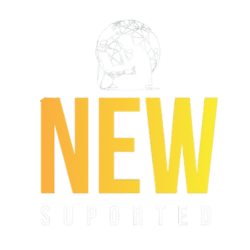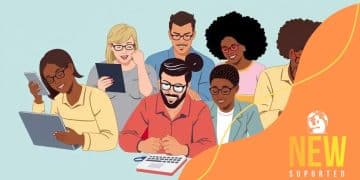The growing importance of soft skills in education

The growing importance of soft skills in education reflects their critical role in enhancing communication, teamwork, and problem-solving abilities, essential for academic success and future career opportunities.
The growing importance of soft skills in education is reshaping how we view learning environments. Have you ever wondered how abilities like teamwork and communication impact students’ futures? This article explores these crucial skills.
Understanding soft skills in education
Understanding the soft skills in education is essential for preparing students for real-world challenges. It’s not just about academic knowledge; these skills help students thrive in life and work.
Soft skills include abilities like communication, teamwork, and problem-solving. These skills enable students to collaborate effectively with others and adapt to various situations. In today’s world, employers seek individuals who possess these skills, making it crucial for educational systems to emphasize them.
Importance of Communication Skills
Effective communication is a vital soft skill. It allows students to express their ideas clearly and confidently. Good communication enhances group projects and helps resolve conflicts. As students learn to articulate thoughts, they also become better listeners.
Benefits of Teamwork
Teamwork is another key component of soft skills. Working in groups teaches students how to share responsibilities and appreciate different perspectives. They learn to compromise and find common ground. This experience not only enriches their learning but also builds trust among peers.
- Encourages collaboration.
- Builds interpersonal relationships.
- Fosters a sense of belonging.
- Prepares for future workplace dynamics.
Moreover, soft skills help in developing emotional intelligence. Students learn how to navigate their emotions and understand those of others. This skill is crucial for maintaining healthy relationships, both personally and professionally.
As we recognize the impact of these skills, incorporating activities that promote them becomes essential. Role-playing and group discussions are effective methods to enhance soft skills. By actively participating, students can practice and refine these abilities in a supportive environment.
Benefits of soft skills for students
The benefits of soft skills for students are significant as they prepare for both academic success and future careers. These skills provide a foundation for effective communication, collaboration, and problem-solving, all essential in today’s fast-paced world.
When students actively develop their soft skills, they enhance their learning experiences. Being able to work well in teams not only helps with group projects but also fosters relationships that can last a lifetime. Students with strong interpersonal skills often face fewer conflicts and have greater emotional resilience.
Improved Academic Performance
Students with good soft skills tend to excel in their studies. They are more likely to participate in class discussions and ask questions. This engagement leads to a deeper understanding of the material. Additionally, strong communication skills allow for clearer expression of ideas in essays and presentations.
Enhanced Career Opportunities
As students transition to the workforce, soft skills become even more critical. Employers look for candidates who can work well with others and adapt to new challenges. Possessing strong soft skills can set students apart in job applications, giving them a competitive edge.
- Fosters a positive classroom environment.
- Encourages creative thinking and innovation.
- Builds leadership qualities.
- Promotes effective conflict resolution.
Furthermore, as students learn to manage their time and prioritize tasks, they develop essential organizational skills. This organization leads to better study habits and the ability to meet deadlines, which are vital in both academic and professional settings.
Incorporating activities that promote the development of soft skills in classrooms, such as group projects, presentations, and role-playing, can significantly enhance learning experiences. By practicing these skills regularly, students become more comfortable and proficient in their use.
Integrating soft skills into curricula

Integrating soft skills into curricula is essential for creating well-rounded students. This approach ensures that learners not only acquire academic knowledge but also develop crucial interpersonal abilities. Educators play a vital role in shaping students’ futures by incorporating these skills into daily lessons.
Teachers can embed soft skills into various subjects by using project-based learning. This method encourages collaboration and critical thinking, allowing students to work together towards common goals. As they engage in group projects, they practice communicating effectively and resolving conflicts.
Practical Strategies for Integration
One effective strategy is to include role-playing activities in the classroom. These activities help students understand different perspectives and enhance their empathy. When students role-play real-life scenarios, they learn to navigate social interactions, preparing them for their futures.
Another approach is to utilize peer assessments. This technique fosters constructive feedback among classmates, strengthening their communication skills. Students learn to express their thoughts clearly while also developing the ability to accept criticism positively.
- Implement group discussions to facilitate sharing of ideas.
- Encourage collaborative problem-solving activities.
- Utilize interactive games that promote teamwork.
- Integrate soft skills into project rubrics for evaluation.
Furthermore, teachers should model soft skills in their interactions with students. By demonstrating active listening, respect, and constructive feedback, educators create a supportive environment. This modeling has a lasting impact, influencing how students approach their interactions with peers.
As technology becomes more integrated into education, online collaboration tools can also enhance the teaching of soft skills. Platforms that facilitate group work help students practice teamwork and effective communication, even from a distance.
Assessing soft skills development
Assessing soft skills development is essential for understanding how well students are progressing in crucial areas like communication, teamwork, and problem-solving. Unlike traditional assessments, evaluating soft skills requires different approaches to capture a student’s growth effectively.
One effective method is the use of observational assessments. Teachers can watch students during group activities and take notes on their interactions. This allows educators to see firsthand how students communicate and collaborate with their peers.
Tools for Assessment
Another useful tool for assessing soft skills is self-reflection. Students can complete surveys or journals where they evaluate their own skills and progress. This encourages them to think about their strengths and areas for improvement.
Peer Feedback
Peer feedback is also valuable in assessing soft skills. When students give feedback to each other after group tasks, they learn to articulate their observations and opinions. This process not only helps in skill development but also fosters trust and respect among classmates.
- Incorporate rubrics that include soft skills criteria in assessments.
- Use role-playing scenarios to observe student reactions and adaptability.
- Implement group projects with peer evaluations.
- Encourage group discussions to monitor engagement and leadership skills.
In addition, teachers can create portfolios showcasing students’ work and accomplishments. Portfolios allow students to collect evidence of their soft skills over time, showcasing projects, group work, and reflections on their learning experiences.
Feedback from parents can also play a crucial role. When parents provide insights on their child’s behavior and teamwork skills at home, it adds another layer to the assessment, helping teachers understand the full scope of a student’s abilities and growth.
Real-world examples of soft skills in action
Real-world examples of soft skills in action demonstrate how these abilities impact lives and careers. Encountering situations where soft skills are crucial provides insight into their significance beyond the classroom.
For instance, consider how a student named Sarah worked on a group project. Initially, she struggled with communication. However, through practice, she learned to express her ideas clearly. As she collaborated with her teammates, she developed her teamwork skills.
Case Study: A Team Project
During one project, Sarah’s team faced a conflict regarding different ideas. Rather than escalating the disagreement, Sarah utilized her problem-solving skills. She suggested a brainstorming session in which everyone could share their thoughts. This approach eased tensions and led to a creative solution that satisfied all team members.
The Role of Leadership
In another scenario, a student named Jason took the lead during a school event. His ability to delegate tasks highlighted his organizational skills. While organizing the event, he encouraged his classmates to voice their opinions, which built trust and teamwork.
- Effective communication enhances clarity.
- Collaboration leads to innovative solutions.
- Conflict resolution fosters a positive environment.
- Leadership builds confidence among peers.
Both Sarah and Jason show that mastering soft skills opens doors to future opportunities. Employers often seek candidates who can work well in teams and communicate effectively. In internships or jobs, these skills are put to the test as students navigate real-world challenges.
Moreover, many companies conduct team-building exercises to enhance soft skills among employees. These activities not only improve collaboration but also make the workplace more enjoyable and productive. Employees learn to appreciate one another’s strengths, leading to better performance overall.
soft skills are essential for students as they prepare for the future. These skills, including communication, teamwork, and problem-solving, enhance both academic success and career opportunities. By integrating soft skills into education, we empower students to thrive in real-world situations. The examples we see in daily life show how important these skills are, not just for personal growth but also for building a collaborative and positive community. Fostering these abilities will ensure students are ready to face various challenges and succeed in their endeavors. Educators and parents must work together to support this development, making soft skills a core part of learning.
FAQ – Frequently Asked Questions About Soft Skills in Education
What are soft skills, and why are they important in education?
Soft skills are abilities such as communication, teamwork, and problem-solving. They are important in education because they enhance students’ academic performance and prepare them for future careers.
How can teachers integrate soft skills into their curriculum?
Teachers can integrate soft skills by using project-based learning, role-playing activities, and group discussions that encourage collaboration and communication.
What are some real-world examples of soft skills in action?
Real-world examples include students resolving conflicts during group projects, taking leadership roles in events, and effectively communicating with peers and teachers.
How can parents support the development of soft skills in their children?
Parents can support soft skills development by encouraging teamwork at home, providing constructive feedback, and discussing the importance of communication and interpersonal relationships.






